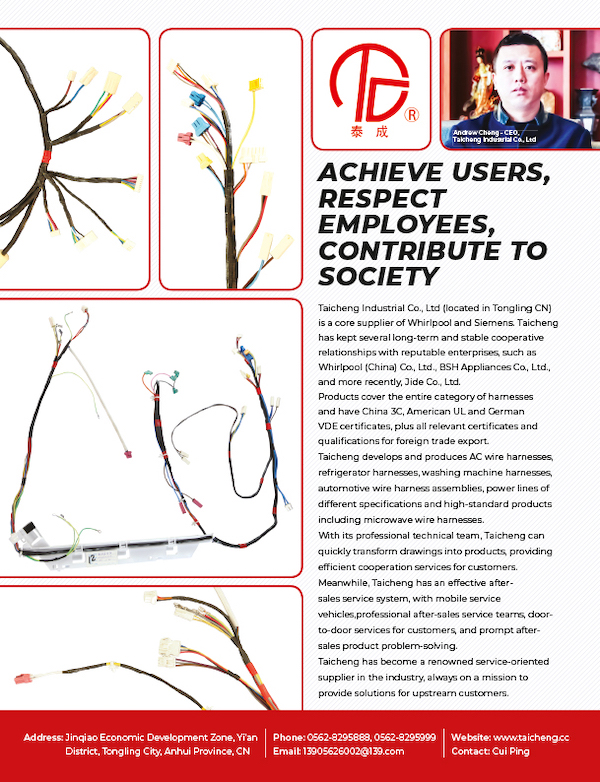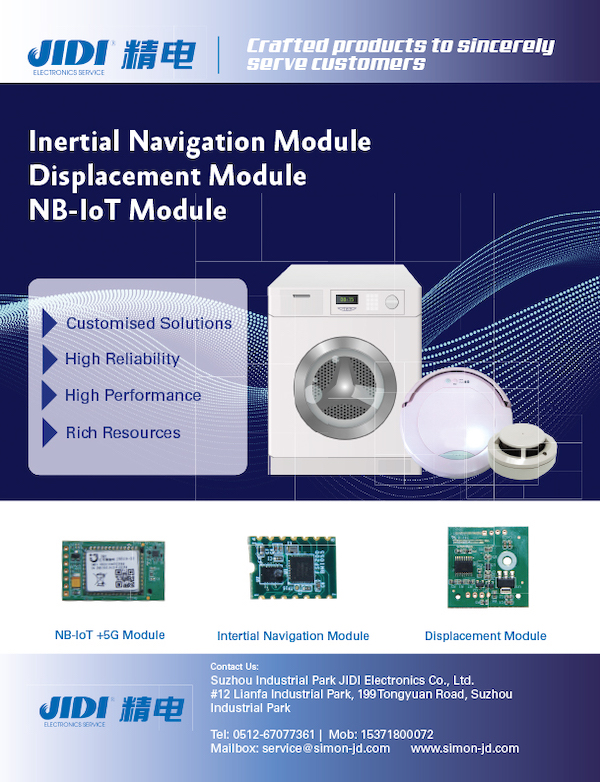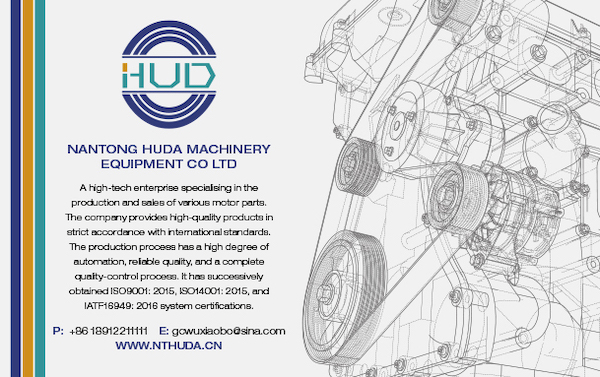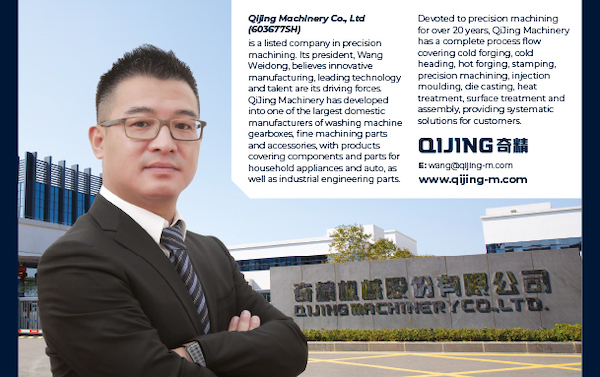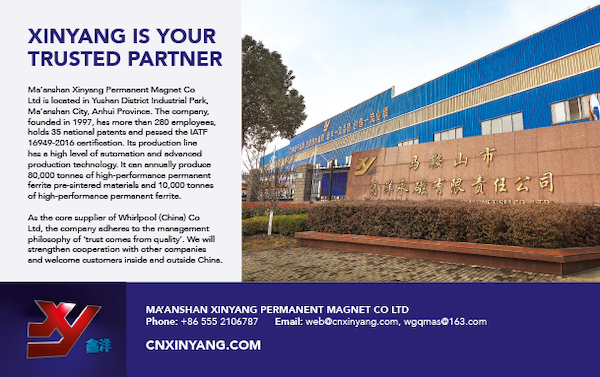Jason Ai is holed up in his Hefei office while chatting with The CEO Magazine. Explaining he has to remove his mask before our interview begins, the Whirlpool China President and CEO seems delighted by the distraction. After all, it’s been a lonely fortnight in isolation, quarantined against the coronavirus.
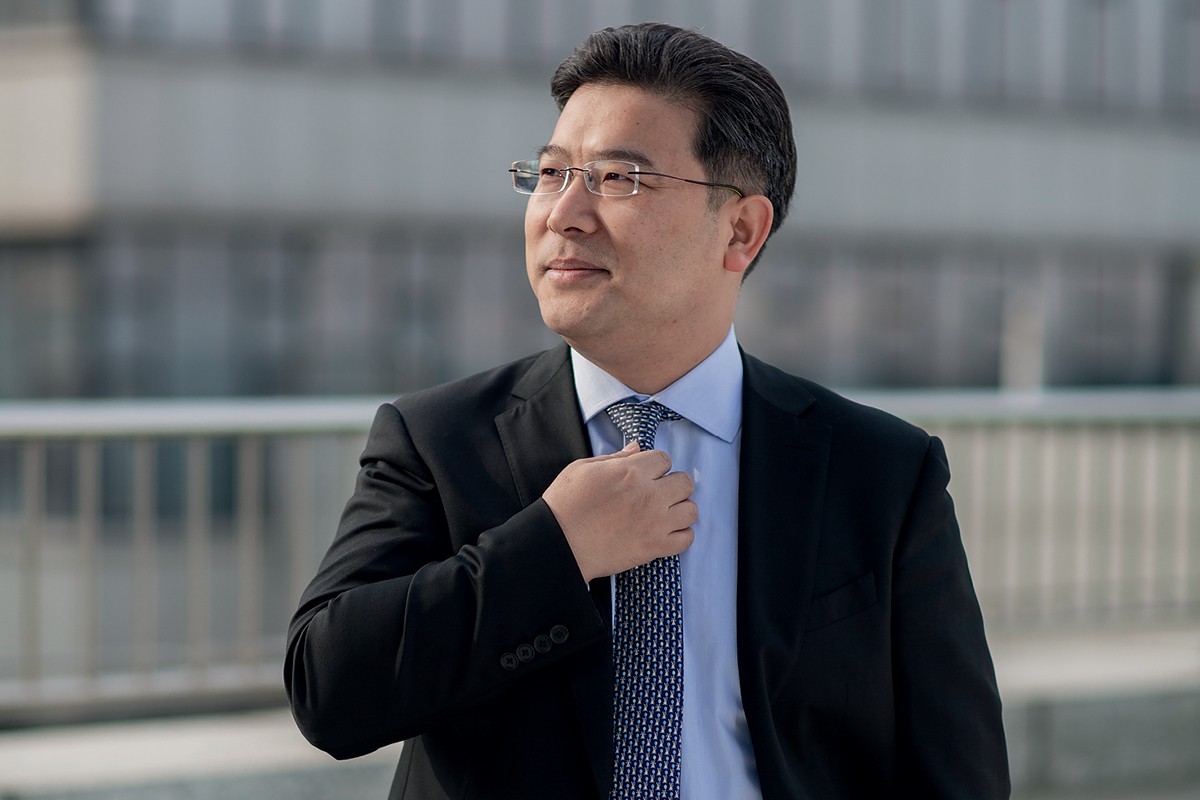
Normally, Jason spends the week in Hefei, commuting back to Shanghai by speed train every Friday to spend the weekend with his family. However, his routine was disrupted one Monday morning on his return to Hefei when the city, only about 380 kilometres from the virus epicentre of Wuhan, was announced to be in lockdown.
Jason had to be quarantined, choosing to stay in the office where he could at least rely on video conferencing to continue working and a team of “decent” people to get manufacturing back on track after it was halted late last year.
He admits he has no idea when he’ll next get home, conceding that it’s rather a moot point, since it would mean starting the quarantine process all over again on his return to Hefei. But his amicable and very pragmatic attitude towards the crisis is rather typical of this executive who, rather than catastrophising, prefers to recall his favourite piece of advice.
“There are more solutions than problems,” he says. He also calls on his great sense of humour to make the best out of a bad situation. In fact, he’s surprisingly positive about his predicament as he looks on the bright side, laughing when it’s pointed out to him that at least he has some clean clothes.
“I have a combo washing machine and dryer in my office,” he says. “So I’m able to do all my washing.” It’s obviously a marvellous convenience, but one which also begs the question: Is this the first time he’s had to do his own washing? “No! You know the Chinese husbands are always good at housework,” he quips. “I even iron my own clothes!”
Jason’s remarkable positivity is probably what led him to make a bold decision to take up the top role of Whirlpool China at its rough time in 2017. Samuel Wu, Whirlpool President Asia–Pacific and Jason’s former boss at Osram, approached him.
“He knows me very well,” Jason says. “He told me that when he joined Whirlpool in February 2017, he realised he needed a strong leader to turn the business around in China. He thought of me and I joined him six months later. I definitely saw it as a challenge, but I also recognised Whirlpool as a good platform for any professional manager to do what it takes to overcome that challenge.”
And Jason doesn’t sugar-coat the tough task he faced. While Whirlpool celebrates its worldwide recognition for its whitegoods and appliances, it lacks a competitive profile in China where local brands dominate the market.
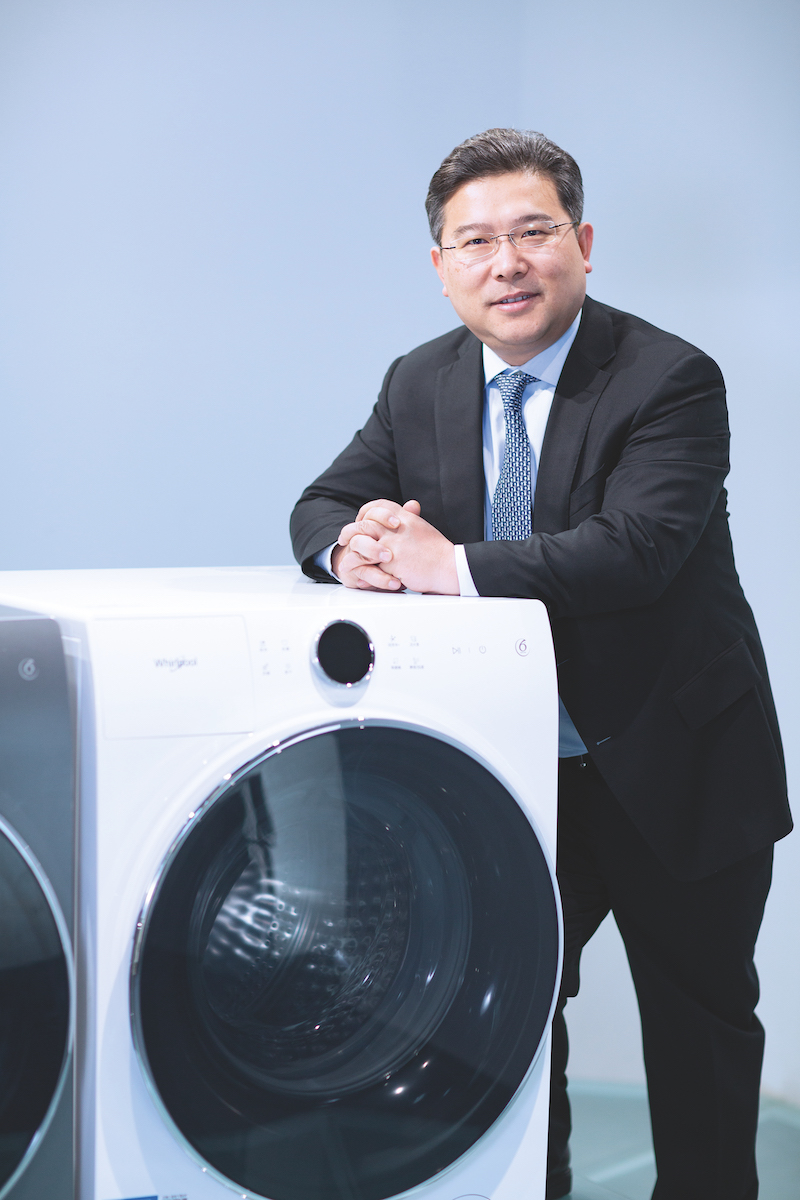
Whirlpool Corporation, based in the US, with more than 100 years of operating history, employs 77,000 and operates a total of 59 manufacturing and technology research centres worldwide in 2019 producing Whirlpool, Maytag, KitchenAid, JennAir, Amana, Brastemp, Consul and Bauknecht brands for the laundry and kitchen.
Hefei has one of three smart factories producing Whirlpool products (the other two are in the US and Italy) and employs hundreds of engineers to research and develop. Hefei also has a dedicated research and development centre for innovations.
Yet sales in Asia contribute only 7% to Whirlpool’s global annual figure of US$21 billion, with China and India being the leading markets. “Whirlpool is running in this marathon. We compete against two major local brands, which command more than 65% of the market here,” Jason explains.
“But China is a huge market and we plan to be the growth for Whirlpool globally. We just have to play smart and pinpoint our brand positioning for the premium market, otherwise you lose focus. You can’t succeed everywhere, or you run the risk of going nowhere.”
“China is a huge market and we plan to be the growth for Whirlpool globally.”
Jason’s interest in engineering was sparked at school after witnessing a rocket launch on television. He enrolled into Northwestern Polytechnical University in Xi’an, graduating in automation control and mechanical design before landing his first job in 1997 as an R&D engineer at the Shanghai Aerospace Control Equipment R&D Institute.
“It was very exciting,” he remembers. “And no, obviously, as a new graduate I was not privy to secrets there, but I did have to sign a two-year confidentiality clause when I left.”
After three years, Jason moved to Schneider Electric, but his vision of being immersed behind the scenes as an engineer didn’t quite go to plan after his new boss suggested he make use of his excellent communication skills by venturing into sales and marketing.
“I joined the company thinking I would work as an application engineer,” Jason says. “But at that time, sales and marketing were emerging as the most powerful functions in China and my boss said I should keep an open mind and use my communication skills to become a sales engineer.”
Jason says he’s forever grateful for Schneider’s investment in him, helping him discover a love for working with people and solving their problems.
He moved quickly through the ranks into various roles, including product marketing manager and regional sales manager, eventually becoming Vice President Industry BU in 2011.
“The training triggered a very strong customer-oriented mindset in me,” he says. “Naturally, when you find a job outside of your major, you also need to think about how you can leverage the knowledge you have and obviously my background as an engineer helped in my roles in sales. It was a wonderful part of my career, I learned so much about management and leadership.”
His willingness to step outside his comfort zone and work in sales also forced Jason to confront his fear of communicating in English. He admits that while he studied the language at school, it was too intimidating to join in the conversations.
“I didn’t have the confidence and didn’t even try,” he laughs. “But I knew I had to improve and eventually enrolled in an English training school where for a whole day over the weekend only English was spoken. Gradually my language skills improved and I was confident in talking.
“Actually, I think that attitude reflects my personality. If you want to advance in your career, you have to identify your weak points and focus on improving them.”
“If you want to advance in your career, you have to identify your weak points and focus on improving them.”
Jason applies that same philosophy to growing Whirlpool in China. Across the country there are over 7,300 people working in 29 branch offices throughout 11 regions and 2,000 service points. He acknowledges the company had a rocky start when it launched in Hefei in 1994, when more than US$300 million was invested over a three-year period in four joint ventures targeted at setting up factories to make fridges, air conditioners, washing machines and microwaves.
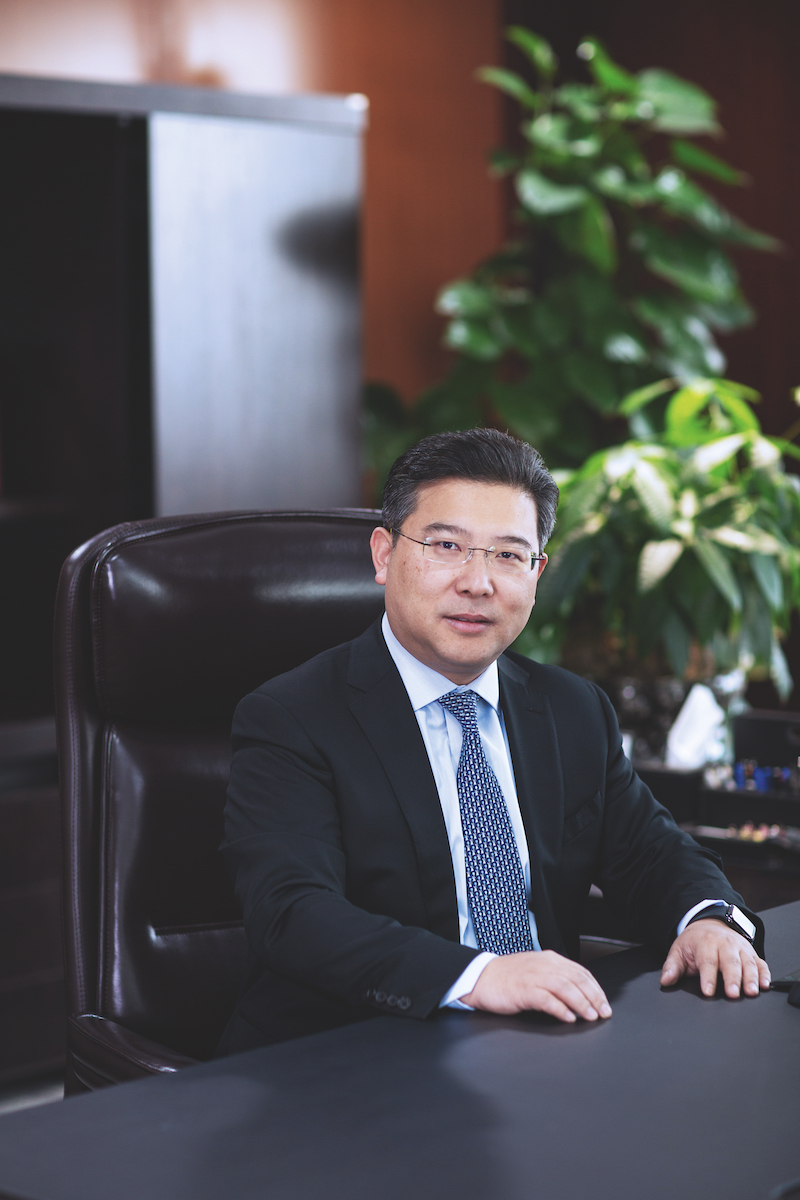
However, the company failed to beat local competitors offering lower prices, better distribution and models more suited to Chinese consumers. By 1997, having lost more than US$100 million, Whirlpool’s air conditioner and refrigerator plants were shut down.
“Despite Whirlpool being very well known in the North American and European markets, there was no brand awareness in China, a very competitive market for home appliances. The 90s was a period of very rapid growth for the industry and we were competing against local brands who dominated.”
In 2014, Whirlpool acquired Hefei Sanyo, a leading home appliances manufacturer of washers, fridges and microwaves distributing the popular Sanyo, Rongshida/Royal Star and Diqua brands in more than 30,000 outlets throughout China.
In 2018, Whirlpool’s global R&D centre and China headquarters were opened in Hefei and that same year, just a year after Jason started, the company turned a profit of around US$44.7 million.
“When I joined my first priority was to position our brand correctly, which meant getting a clear message through that we were leveraging from Whirlpool’s 108-year heritage. We educate the Chinese consumers about the very long history of this company that has been dedicated to the laundry and kitchen.
“The second thing was to improve the lifestyle of our consumers, to give them an emotional benefit with new technology – a smart home. With the emerging middle class, the quality of life is improving and they are discovering how our appliances can enhance their lives.
“We leverage our global platform to develop cutting-edge technology in our world-class manufacturing base in Hefei using our 20 years of experience and understanding of the Chinese consumers. So, after a six-month marketing campaign, we increased our brand awareness using excellent products to support our brand.”
While sales improved, Jason still had to strive to convince consumers that Whirlpool was not just about washing machines, the product on which the business was built.
The company was founded in Benton, Michigan in 1911 by Louis Upton and his uncle Emory. They added a motor to a patent they had acquired for a manual clothes washing machine and became the first to manufacture motor-driven wringer washers.
Since then, the company’s product portfolio has expanded to produce refrigerators, freezers, cooking appliances, dishwashers, mixers and other small domestic appliances. However, there is still a perception that Whirlpool’s strength relies on the washing machine.
At the inaugural China International Import Expo (CIIE) in 2018, Whirlpool showcased its vast range of products, including the W Collection, featuring seamless built-in ovens, coffee machines, cooktops and dishwashers created from advanced technology centring around sensitive integration.
Last year, the brand also launched a fridge and Italian-made kitchen appliances designed and produced in China, while a washing machine added to the Emperor line was awarded the prestigious iF Design Award.
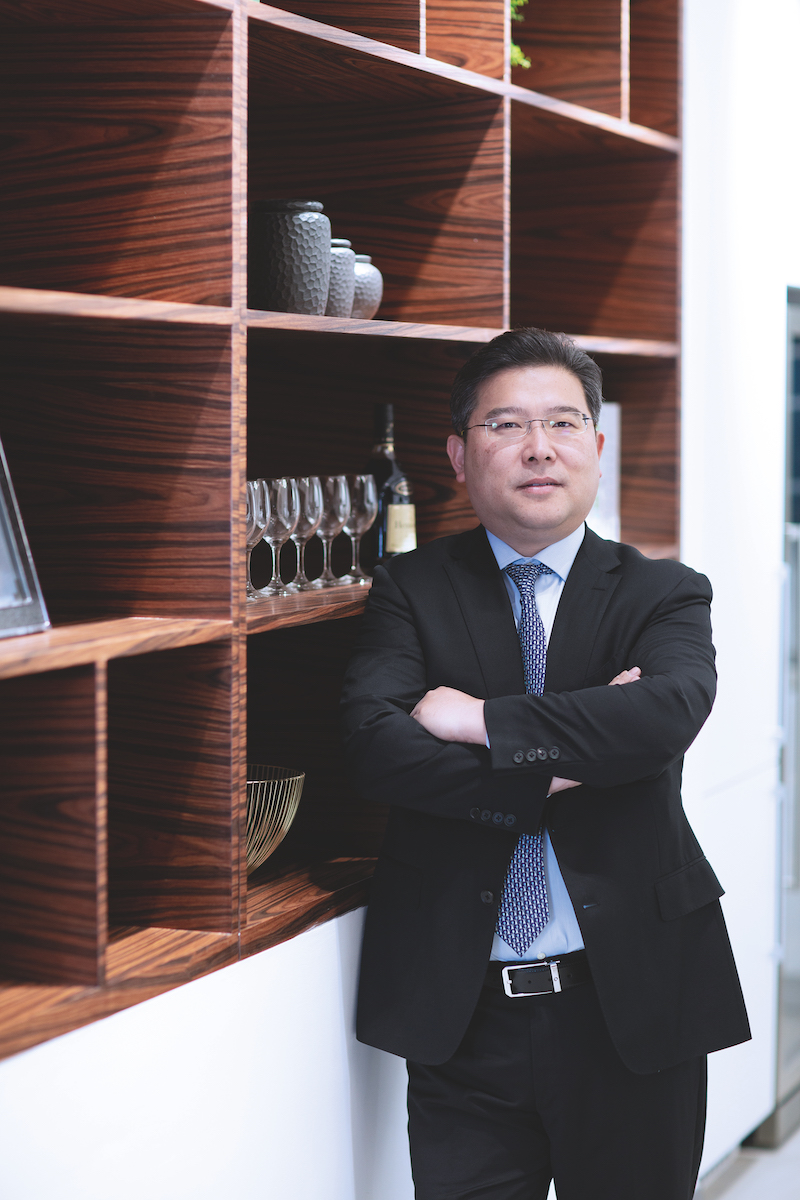
Meanwhile, comparing to Europe’s mature and rosy dishwasher business, dishwashers are becoming the new go-to product in China. Traditionally, dishwashers have never been a priority for the Chinese, who are sceptical over whether a machine could cut through cooking oils or, indeed, whether it could fit in their smaller kitchens.
However, sales have more than doubled over the past five years with new models introduced to a younger generation leading increasingly busy lives and averse to washing up. The popularity of dishwashers has increased even more since
the outbreak of the coronavirus.
“Chinese people are realising change is needed and that includes having a strong machine to ensure the dishes are clean,” Jason says. “Health concerns are paramount, so everyone’s trying to get into the dishwasher business now.
“We are enjoying great support in this sector from our global headquarters with investments to China to launch the most modern production line for dishwashers in September. Integrating the strength of local understanding and global development knowhow help drive the growth we want in our China markets and has been a big part of my journey since joining the company.
“Another of the products gaining traction are the garbage disposers that are fitted with antibacterial grinding bins to prevent bacterial growth.”
Whirlpool employs 300 engineers to design and develop components and products at Hefei’s R&D centre, satisfying not just local demand but also export markets in Japan and South-East Asia.
Exports have also included a model for the US market, with up to 99% of components designed and manufactured locally.
While Jason doesn’t hesitate to praise the R&D and manufacturing process of Whirlpool products in China as exceptional, he’s almost a little blasé about how exceptional that process actually is. It’s the speed of the assembly line that boggles the mind.
“A front-loader washing machine can be assembled in just 12 seconds – yes, just 12 seconds. It’s quite fast,” he says.
“We can also design and develop a brand-new product of good quality and at a competitive cost within six to nine months. Having visited our operations at the company’s headquarters in the US, our Hefei centre is very competitive and of course this gives us an advantage over our global competitors.”
Meanwhile, Jason’s ongoing focus on customer experience has led to the launch of China’s first Whirlpool Kitchen Appliance Flagship Store in Hefei.
Opened in June last year to coincide with the 108th anniversary of Whirlpool Corporation, the store offers extensive displays of high-end kitchen appliances, from ovens and fridges to wine cabinets, and their integrated fit into kitchens. Customers are also treated to demonstrations and training on how to use them.
“There are plans to open more of these stores in other major cities,” Jason says. “These are experience stores where customers and friends are invited to use our products, road-test them and use them just as they would at home.”
This direct interaction with customers works both ways for Whirlpool, which is always open to feedback offering tips for future designs. Already the company has modified products to suit Chinese consumer needs such as lowering the height of dishwashers to cater for the lower kitchen counters installed in most Chinese homes.
“The trick for our engineers was to ensure the dishwashers still retained the capacity of the equivalent European range,” Jason says.
Did you know?
Whirlpool Corporation has been responsible for a number of first-to-market innovations including the first electric wringer washer, the first residential stand mixer in 1919, the first countertop microwave in 1967 and the first energy- and water-efficient top-load washer in 1998.
While he obviously cares about his customer, Jason is also heavily committed to his employees. He admits that one of the learnings made when Whirlpool launched in China was the complete disregard of the global corporation’s culture. Jason’s solution to that problem was replacing his leadership team with a fresh new culture of ideas and creativity.
“We did that within 28 months and in 2018, won a global award in leadership and cultural excellence,” he recalls. “Before, the culture was following instructions from the top down with nobody speaking up and morale was quite low. Today, we use the team, asking frontline employees to ask questions about our training, our strategy and our future.
“I’m proud of transforming that culture. It’s not just about listening to your teams either; it’s about taking their input seriously, because if you don’t, they will close their mouths again. That’s my responsibility and I take it seriously.”
While Jason won’t stretch to calling himself a workaholic, he admits he’s constantly switched on to compete with his competitors, who “never sleep”.
“As a CEO, you need to walk the talk, and put those into actions to your team.”
“Our competitors are moving, they are very fast. Lots of detailed things have to be done and I am the guy who has to care about them right up until execution level. I spend a lot of time dealing with the small things even though I’m told I shouldn’t as the CEO. But in my mind the small things reflect your culture, your management style, your value.
“It doesn’t mean I’m micromanaging. It just means I’m reflecting company values. As a CEO, you need to walk the talk, and put those into actions to your team.”
Proudly supported by:
